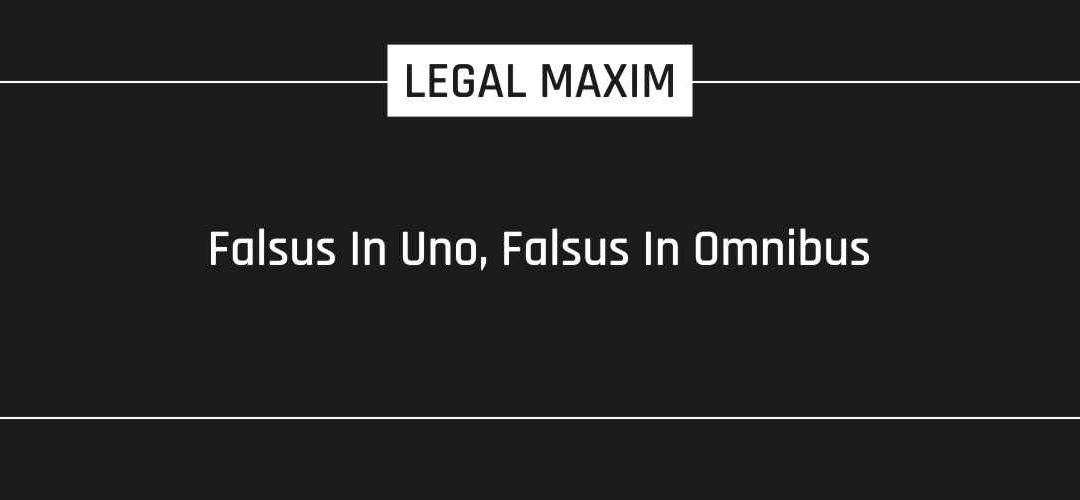Literal Meaning
False in one thing, false in everything.
Origin
Latin
Explanation
It is a general presumption of common law, that if certain facts out of a narrative are false, then the entire narrative is also false. However, the Supreme Court bench comprising of Justice Sanjay Kishan Kaul and Justice Hemant Gupta reiterated in the matter of Mahendran v. The State of Tamil Nadu and held that the said legal maxim is not applicable in India and the witnesses cannot be branded as liars. Similarly, the maxim may properly be applied in those cases only where a witness speaks to a fact with reference to which he cannot be presumed liable to mistake. It is neither considered to be a sound rule of law nor a rule of practice. Also, it has neither received general acceptance nor has this maxim come to occupy the status of rule of law. It is only considered to be a mere rule of caution.
Case Laws
In Ugar Ahir And Ors. vs The State of Bihar, the Supreme Court held that “the maxim falsus in uno, falsus in omnibus is neither a sound rule of law nor a rule of practice. It is, therefore, the duty of the court to scrutinize the evidence carefully and, in terms of the felicitous metaphor, separate the grain from the chaff.”
The Supreme Court in Jakki @ Selvaraj And Anr vs State Rep. By the Ip, while referring to the above maxim held that “Even if a major portion of evidence is found to be deficient, in case residue is sufficient to prove guilt of an accused, notwithstanding acquittal of number of other co-accused persons, his conviction can be maintained. It is the duty of Court to separate the grain from the chaff. The doctrine merely involves the question of weight of evidence which a Court may apply in a given set of circumstances, but it is not what may be called ‘a mandatory rule of evidence.’
